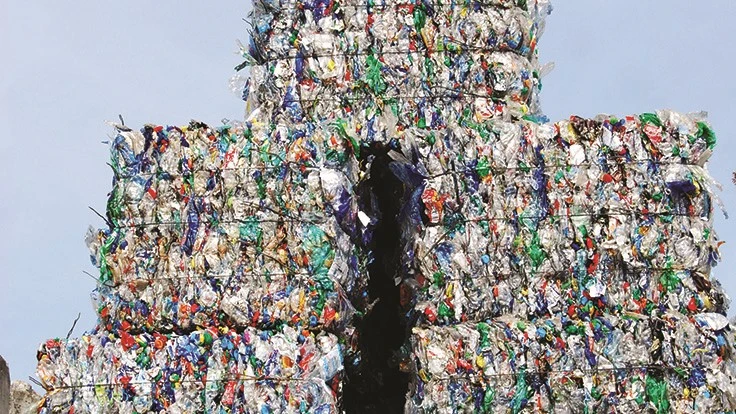
Ontario, California-based rePlanet LLC, which operated a network of beverage container redemption centers throughout California, ceased operations and closed all of its 284 recycling centers and processing facilities Aug. 5, according to a news release issued that same day by the company. RePlanet also says it terminated its entire workforce, numbering 750 people, throughout the state of California.
“With the continued reduction in state fees, the depressed pricing of recycled aluminum and PET (polyethylene terephthalate) plastic and the rise in operating costs resulting from minimum wage increases and required health and workers compensation insurance, the company has concluded that operation of these recycling centers and supporting operations is no longer sustainable,” the company states in the news release.
RePlanet says it will file for Assignment for the Benefit of Creditors (ABC), an insolvency proceeding governed by state law rather than by federal bankruptcy law, and its remaining assets will be liquidated by the assignee.
“We regret that these site closures will negatively impact our employees, grocer partners, customers and the recycling community at large,” the company states. “We thank our employees for their hard work and dedication in providing convenient recycling opportunities to our valued customers across the state of California.”
RePlanet, which was established in 1984, operated as many as 600 redemption centers in California at its height. In 2016, it closed 191 recycling centers and laid off 300 employees.
In response to the closure, Consumer Watchdog, with an office in Los Angeles, released a news release saying the announcement “requires the governor to prioritize recycling reform in the coming months.”
The organization also called for CalRecycle, the state’s Department of Resources Recycling and Recovery, to require grocery and convenience store chains to begin redeeming bottles and cans.
“We warned just months ago that the bottle deposit program was in crisis and today’s closure shows consumers are being left in the lurch by the failure of the state to keep recycling centers open,” consumer advocate Liza Tucker says in the Consumer Watchdog news release. “Gov. Newsom needs to tackle this problem personally and make reform of the broken bottle deposit system a top priority this fall. CalRecycle has failed to deal with the problems we have raised, and they have now become a full-blown crisis for consumers and recycling in California.”
A March report by Consumer Watchdog found that consumers get only about half of their nickel and dime bottle and can deposits back each year, despite paying $1.5 billion in 2018.
Consumer Watchdog recommends making it mandatory for retailers that sell the bottles and cans to accept California Refund Value (CRV) beverage containers for recycling, noting that 8 out of 9 other states require beverage retailers to take empties back in store along with redemption centers.
“It is time for California to join other states and European countries that make bottle deposit systems work by making the beverage industry responsible for the products they make, package, distribute and sell,” Tucker says, adding that the state’s formula for calculating payments to centers is flawed.
In the last five years, more than 40 percent of California redemption centers have closed, according to Consumer Watchdog. That organization and the Container Recycling Institute, Washington, predicted in March that hundreds more closures were imminent because of severe underpayments by the state to support redemption centers in the face of falling prices for aluminum cans and PET bottles.
This story will be updated once Recycling Today has comments from CalRecycle.
Latest from Recycling Today
- BMW Group, Encory launch 'direct recycling’ of batteries
- Loom Carbon, RTI International partner to scale textile recycling technology
- Goodwill Industries of West Michigan, American Glass Mosaics partner to divert glass from landfill
- CARI forms federal advocacy partnership
- Monthly packaging papers shipments down in November
- STEEL Act aims to enhance trade enforcement to prevent dumping of steel in the US
- San Francisco schools introduce compostable lunch trays
- Aduro graduates from Shell GameChanger program





